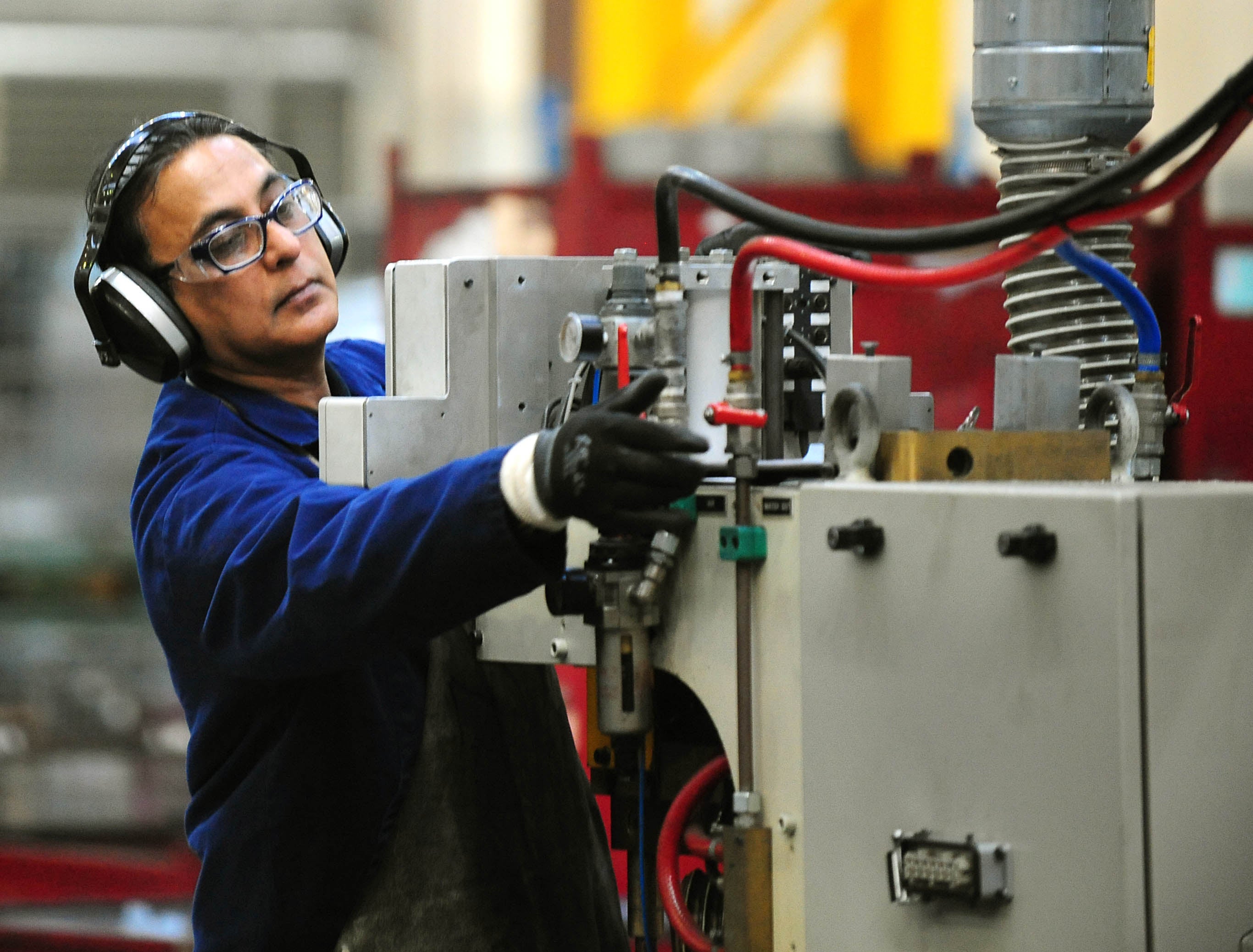Manufacturing growth slows as Brexit and cost-of-living problems weigh
An influential survey found that the UK’s manufacturers saw their growth drop to the lowest since October.

Your support helps us to tell the story
From reproductive rights to climate change to Big Tech, The Independent is on the ground when the story is developing. Whether it's investigating the financials of Elon Musk's pro-Trump PAC or producing our latest documentary, 'The A Word', which shines a light on the American women fighting for reproductive rights, we know how important it is to parse out the facts from the messaging.
At such a critical moment in US history, we need reporters on the ground. Your donation allows us to keep sending journalists to speak to both sides of the story.
The Independent is trusted by Americans across the entire political spectrum. And unlike many other quality news outlets, we choose not to lock Americans out of our reporting and analysis with paywalls. We believe quality journalism should be available to everyone, paid for by those who can afford it.
Your support makes all the difference.The expansion of the UK’s manufacturing sector slowed to a seven-month low as inflation ate into household spending and exports dropped in part due to Brexit.
According to an influential survey, the sector struggled to keep up its growth in May.
Businesses blamed weaker growth in demand from within the UK, fewer export orders, troubled supply chains, rising costs and the war in Ukraine.
As a result the S&P Global/CIPS UK Manufacturing Purchasing Managers Index (PMI) hit 54.6 in May, down from 55.8 in April.
Anything above 50 means that the manufacturing sector is growing in the UK. If the score falls below 50 it is shrinking.
With both input costs and selling prices rising at rates close to April’s peaks, the surveys suggest that there is no sign of the inflationary surge abating any time soon
Although it notched up its 24th consecutive month of growth, the data shows a clear weakening for manufacturers.
A significant part of this is the consumer goods industry. For the first time in 15 months production actually fell, the researchers found when studying survey responses.
The contraction is in part linked to the consumers that are the end target for those goods. Recent inflation means many are struggling to keep up old spending habits.
“Household demand slumped in response to the ongoing cost-of-living crisis,” said Rob Dobson, director at S&P Global Market Intelligence.
“With both input costs and selling prices rising at rates close to April’s peaks, the surveys suggest that there is no sign of the inflationary surge abating any time soon.
“Manufacturers continue to report issues getting the right materials, at the right time, for the right price, and energy prices remain a major concern.”
New export orders dipped for the eighth time in the last nine months, the survey participants revealed.
Companies said that this was due to Brexit difficulties, delays in transportation, shipping disruptions and orders being cancelled due to the Ukraine war.
The cost that companies had to pay rose substantially in May, although dipped slightly from April when inflation was at near records.
As a result they were forced to raise their own prices. Selling prices rose almost as fast as in April, a record high.
“Forward-looking indicators from the survey suggest that a further slowdown may be in the offing,” Mr Dobson said.
“Business optimism dipped to a 17-month low and weaker demand growth led to surplus production, meaning warehouse stock levels are rising.
“Any reversal of this stock-building trend could reinforce the drag of other headwinds and add to downside risks to the outlook.”